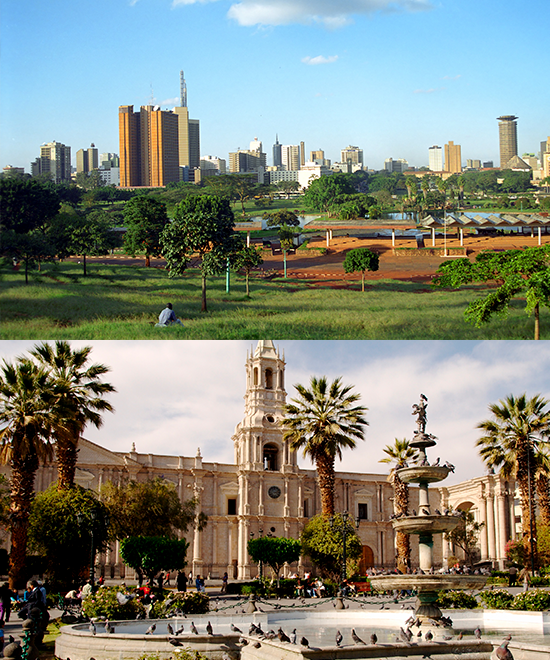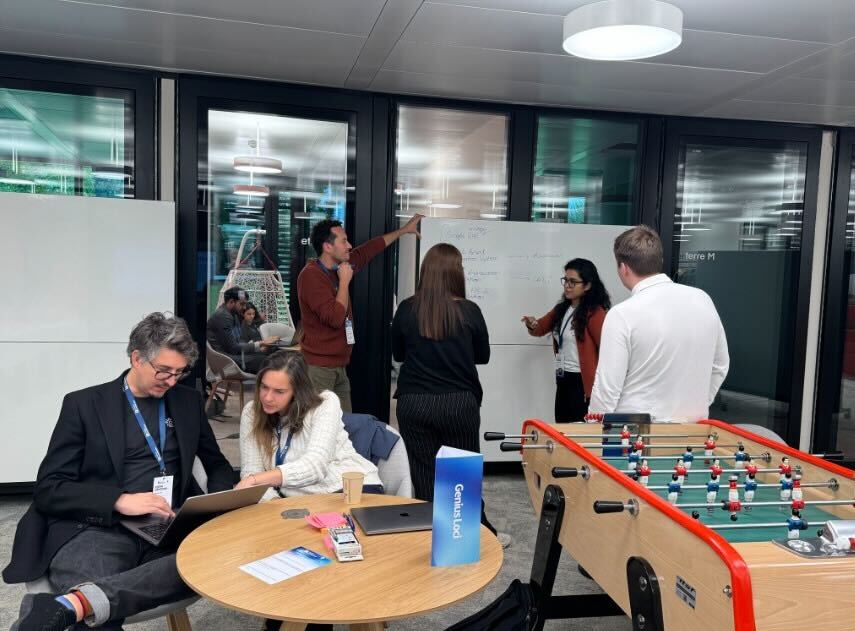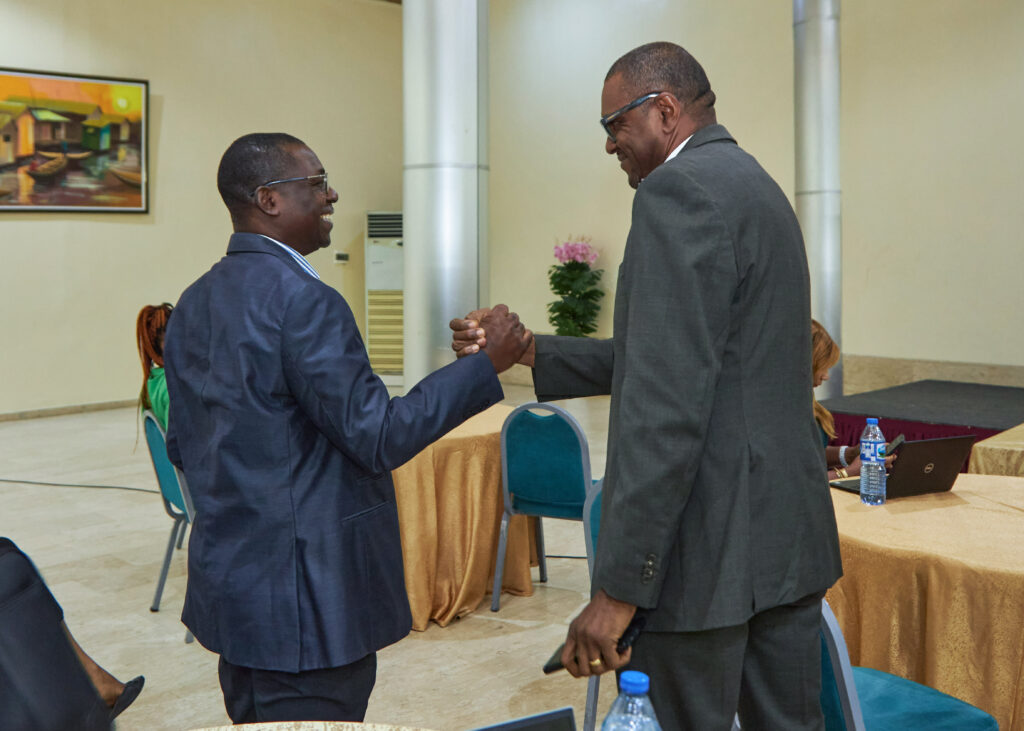
- New cities come from Latin America and Africa.
- Focused on innovation and sustainability, C/Can supports cities as they address the growing burden of cancer and improve equitable access to quality care.
- C/Can will be announcing its next call for applications in 2023.
City Cancer Challenge Foundation (C/Can) has announced over the course of this week the latest cities to join its global network working together to improve access to quality cancer care: Arequipa (Peru) and Nairobi (Kenya). They bring to 11 the number of cities that are part of C/Can’s mission around the world, alongside Cali (Colombia), Asuncion (Paraguay), Yangon (Myanmar), Kumasi (Ghana), Kigali (Rwanda), Tbilisi (Georgia), Porto Alegre (Brazil), Greater Petaling (Malaysia), and Leon (Mexico).
The announcements come as C/Can celebrates its third anniversary as a standalone foundation, and are the first of a series of new cities scheduled throughout the year to join the organisation.
Welcoming the two new cities, C/Can CEO Dr Susan Henshall said:
“C/Can supports cities to develop solutions, policies and processes that help improve the lives of cancer patients and strengthen health systems for cancer care. The global health pandemic has shed more light on the importance of maintaining a resilient health system to support patients. In many countries, national health authorities are struggling to address the pandemic in addition to existing health challenges. As a result, cities are becoming even more critical in leading efforts to provide quality cancer care. We look forward to our next call for applications in 2023.”
Rebecca Morton Doherty, C/Can’s Director for Policy and Global Impact, added:
“C/Can’s process supports cities to design and execute policies tailored to local realities. We have seen that cities are granular enough to effectively coordinate people and resources, but also big enough to generate systemic, long lasting change that can be scaled and serve as good practice models.”
Transparent due diligence process
Building on C/Can’s experience from previous applicant cities, Arequipa and Nairobi have undergone a robust, transparent due diligence process over the course of 2021, allowing C/Can to better understand the local cancer care landscape, engage with key stakeholders, and assess to what extent the C/Can model could add value to ongoing cancer care efforts in the cities.
Located in the south of the country, Arequipa is Peru’s second city and has a population of around one million. According to Globocan, the global cancer observatory, Peru will close this year with more than 70,000 new cases in total, up 6% from 2018, and that by 2040, the figure is expected to reach 125,000.
“Cancer is a growing public health problem in Peru. The C/Can process presents an important opportunity to continue building on the momentum and commitment of the recently adopted cancer law. Arequipa will generate learnings and best practices of implementation of the law that can be replicated and scaled in other cities.” said Dr Víctor Palacios, Director of the Health Ministry’s National Cancer Prevention and Control Directorate.
Arequipa’s application process was led by the Peruvian Oncology Medicine Society (SPOM) and the Regional Institute for Neoplastic Diseases – South (IREN Sur).
“Peru, like several other South American countries, is experiencing remarkable population growth, ageing, and urbanisation, which has given rise to profound changes in its epidemiological profile. Being part of C/Can will help Arequipa, and Peru, as we scale up our efforts and work across a range of sectors to improve access to cancer treatment,” said Dr Jesús Alberto Rivera, Director of IREN Sur.
In addition to being the capital of Kenya, Nairobi is the East African nation’s largest city, with a population of 4.4 million. Cancer is the third-leading cause of death in the country after infectious and cardiovascular diseases. According to the Ministry of Health of Kenya, between 2012 and 2018, the annual incidence of cancer in Kenya increased from 37,000 to 47,887 new cases. This number is expected to rise by more than 120% over the next two decades according to Globocan. The Nairobi application process was led by the Kenyan Network of Cancer Organisations.
Commenting on Nairobi’s membership, Christine Mugo-Sitati, Executive Director of KENCO said: “Joining C/Can represents a major step forward in our work to improve access to better cancer care and reflects a nationwide commitment to addressing our country’s growing cancer burden.”
Lt. Gen Mohamed Badi, Director General of the Nairobi Metropolitan Services added:
“Effective cancer prevention and control calls for a multi-sectoral and multi-disciplinary approach. Working with C/Can will greatly contribute to better collaboration with non-state actors to reduce the incidence of cancer and improve the quality of care for those who develop cancer in Kenya.”
Next steps
Over the next three months these two cities will work closely with C/Can on recruiting a locally based city manager to coordinate activity, while developing a memorandum of understanding to outline the roles and responsibilities of all key stakeholders, establishing a timeline of activities and milestones.
This will then be followed by the launch of the City Engagement Process, whereby over the course of two-to-three years, local stakeholders will identify, plan and execute priority cancer care solutions adapted to the city’s resources.
The City of Tomorrow
C/Can launched the City of Tomorrow Campaign in February 2020, inviting cities from around the world to join a growing, multisectoral community. In response, 14% of cities invited to apply came from Eastern Europe; 33% from Africa; 19% from Asia; 10% from MENA; and 24% from Latin America.
Around 100 civil society organisations supported their cities’ bids to join the City Cancer Challenge initiative. Shortlisted cities were then invited to complete a more detailed application, which was followed by a robust due diligence process.
Alongside Nairobi and Arequipa, there is a wider shortlisted group of cities from all regions still undergoing due diligence, progressing along different timelines based on the timing of on-site visits, the cities’ overall readiness and the schedule for C/Can’s organisational decision-making.





